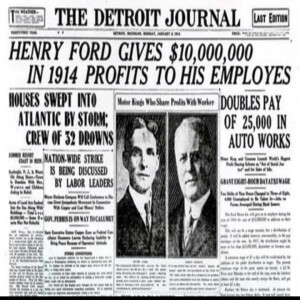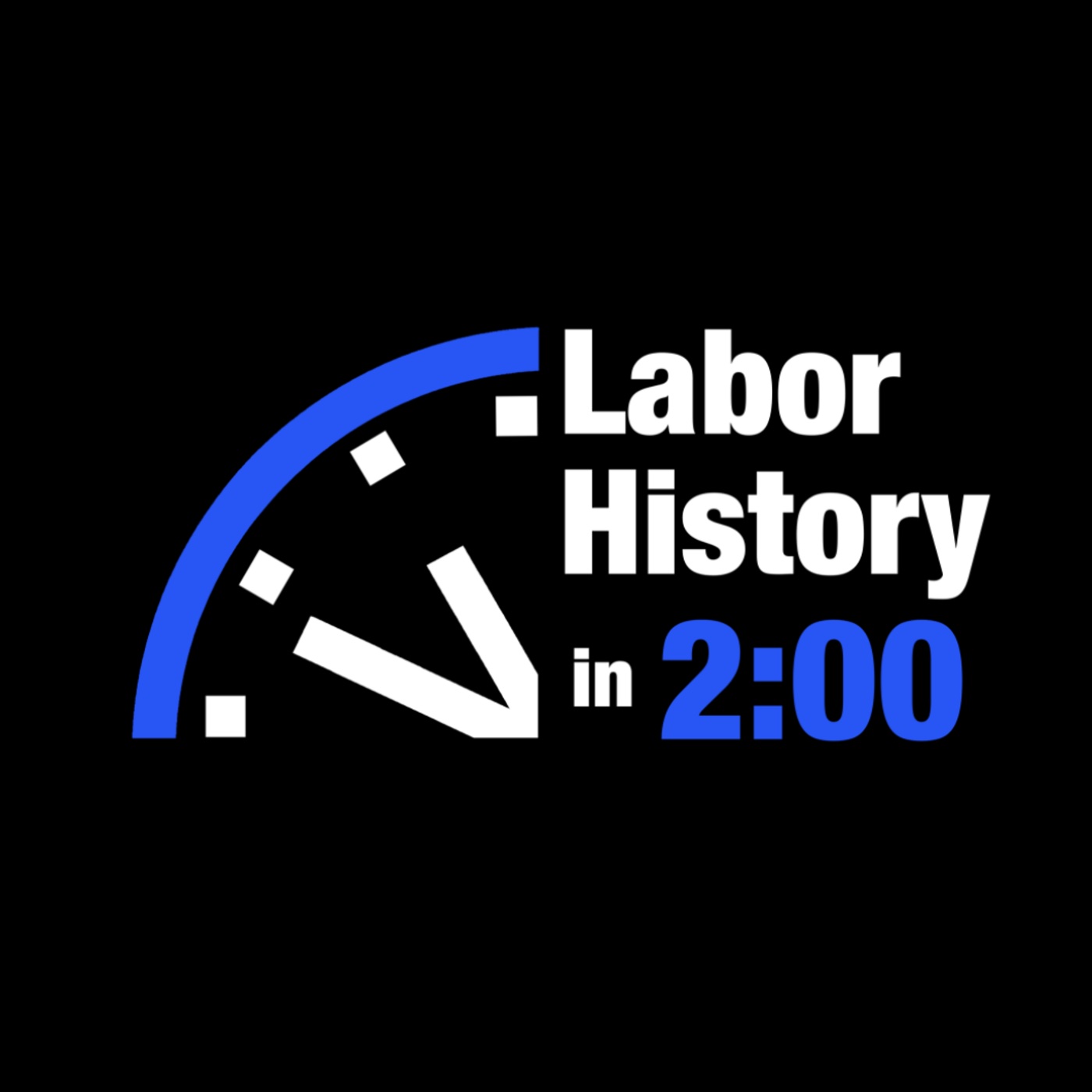Episodes

Sunday Jan 05, 2025
January 5 - The Best Customers
Sunday Jan 05, 2025
Sunday Jan 05, 2025
Today in labor history, January 5, 1914 the Ford Motor Company raised its basic wage from $2.40 for a nine-hour day to $5 for an eight-hour work day. Many of Ford’s contemporary critics scorned his “Five Dollar Day.” Journalists and other auto makers predicted disaster for the industry. Henry Ford implemented the wage increase to head off labor unrest in the company and curtail his problems with worker turnover. The wage increase helped to derail efforts to start a union in his factory. The five-dollar day was not an act of altruism by the automaker. It was a calculated business decision. Most importantly for Ford, the wage increase enabled his workers to become customers and buy cars of their own. Ford declared, “One’s own employees ought to be one’s own best customers.” Despite the prognosticators of doom, Ford’s plan worked. Ford’s profits doubled in the two years after he raised the wages. In 1914 Ford sold more than 300,000 Model Ts, more than all other U.S. automakers combined. By 1920 that number had climbed to a million cars a year. Reflecting back on his decision Ford explained, “The payment of five dollars a day for an eight-hour day was one of the finest cost-cutting moves we ever made.” Perhaps those who today are lining up to predict doom and disaster if the minimum wage is raised might benefit from reading this page from labor history.


Comments (0)
To leave or reply to comments, please download free Podbean or
No Comments
To leave or reply to comments,
please download free Podbean App.